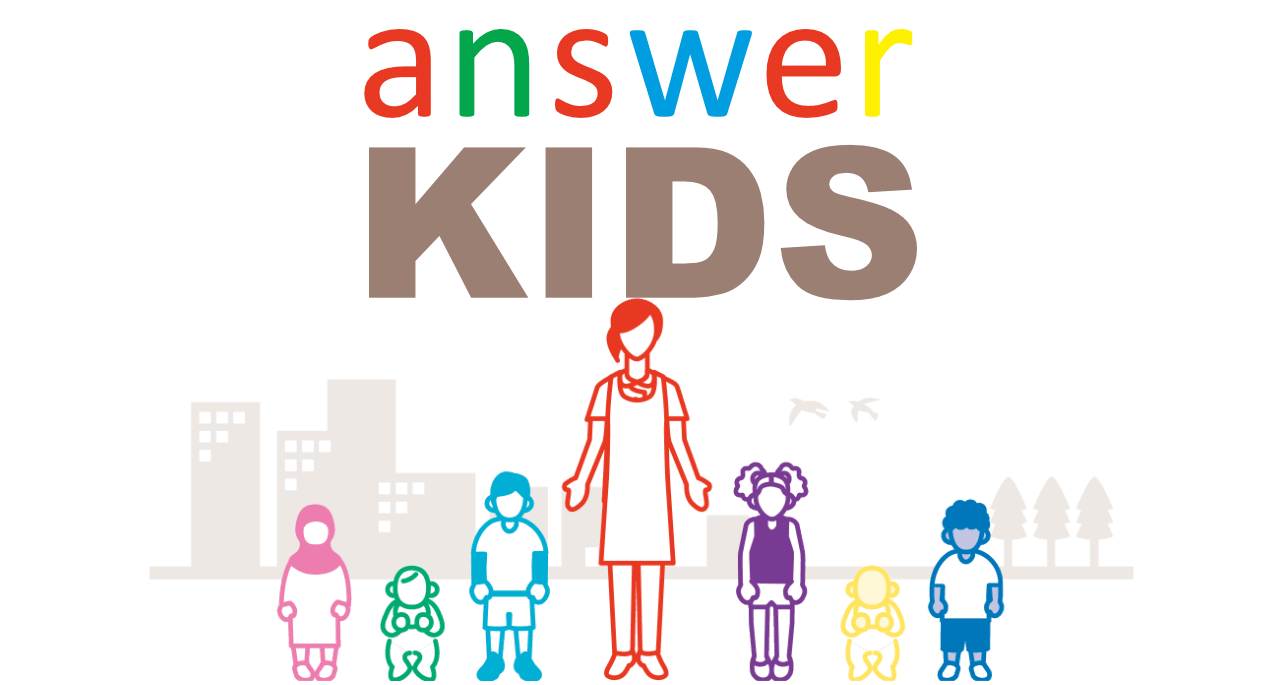山梨県立大学と山梨の外国人
🇬🇧ENG↓|🇧🇷PT-BR↓↓
こんにちは、アンサーノックスのクララです。
前回のブログで、私はブログを書かなかった期間について謝罪し、それはニュースがなかったからではなく、むしろ時間がなかったからだと述べました。
今日は6月24日に起こった大学の授業についてコメントしに来ました。
「カオリさんは今、どこの大学で教えてるの?」って考えているでしょう?
ガッチャ!
今回、このクララが先生になって授業を教えてくれました!
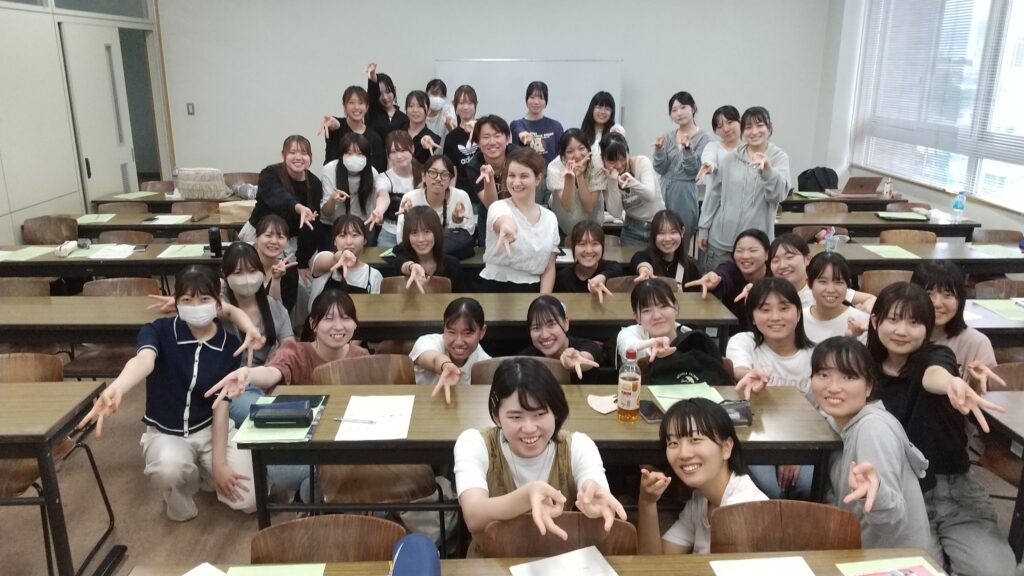
山梨県立大学の学生たちと話をする機会がありました。
みんなさんの中に日本語教師を目指すや人文科学分野で働くことを目指す人がいましたから山梨に住む外国人の経験についてもっと知りたかったです。
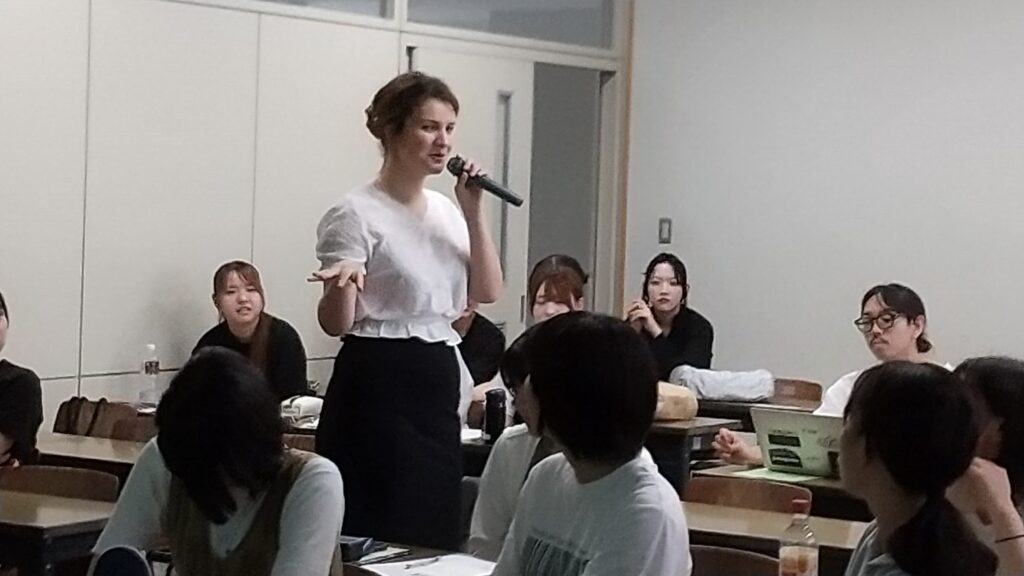
私たちは非常に多様なグループなので、すべての外国人を代表して話すのは難しいですね。
私たちのバックグラウンドは大きく異なりますが、直面する課題の中には共通点もあるかもしれません。
そこで私は、「30代前半のブラジル人女性」の経験を基準として解釈すべきではないことを常に強調しながら、自身の経験を話しました。
自分が理想とした日本と実際に出会った日本について、またマナ法や言葉のルールの難しさ二ついて話しました。
そして日本人の考え方とブラジル人の考え方の違さによくはなしました。考え方はちがうから日常な問題に直面しても異なる解決策を生み出します。これは正しいや正しくないの問題ではなくただの視点の違さだと思います。
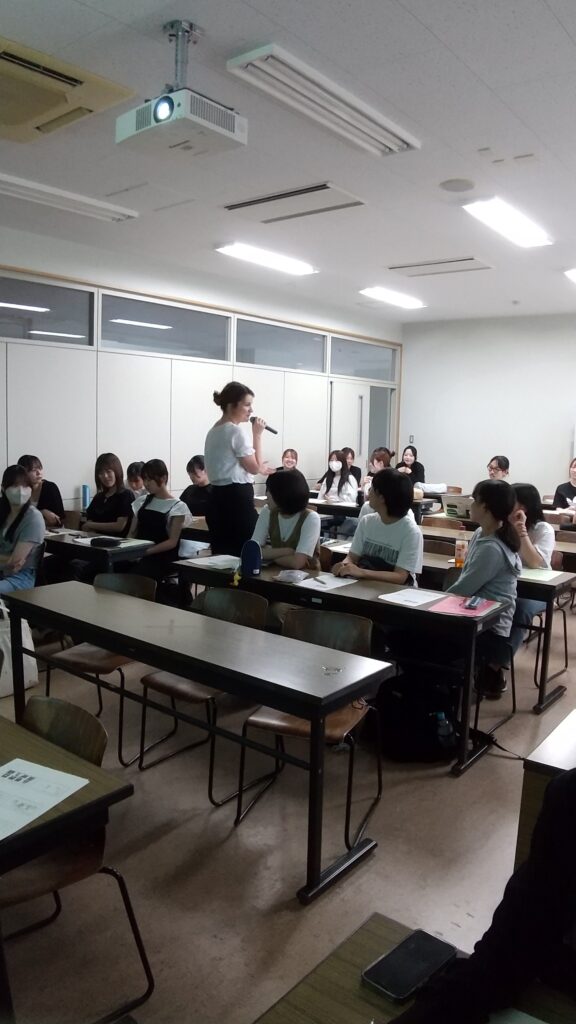
他の外国人のグループに対するこうした異なる視点についても話しました。
他の民族の行動を「間違っている」と判断するのではなく、なぜ彼らが異なる行動をとるのかという根源を理解しようと努めることが重要だと私は信じています。
この気持ちをクラスに伝えようとしました。
私たちは、他の国の私たちの興味を引いた固定観念や文化的問題について活発な会話を交わし、それぞれの背後にある理由を調査しました。
当日温かく迎えてくださった皆様に感謝申し上げます。
私の日本語はまだ足りないからスピーカーとしてすごく下手でしたが、みんなが私とコミュニケーションを取ろうと一生懸命努力してくれたので、結局とても良い経験になりました。
皆の前で、吃音してながらクララがたった。
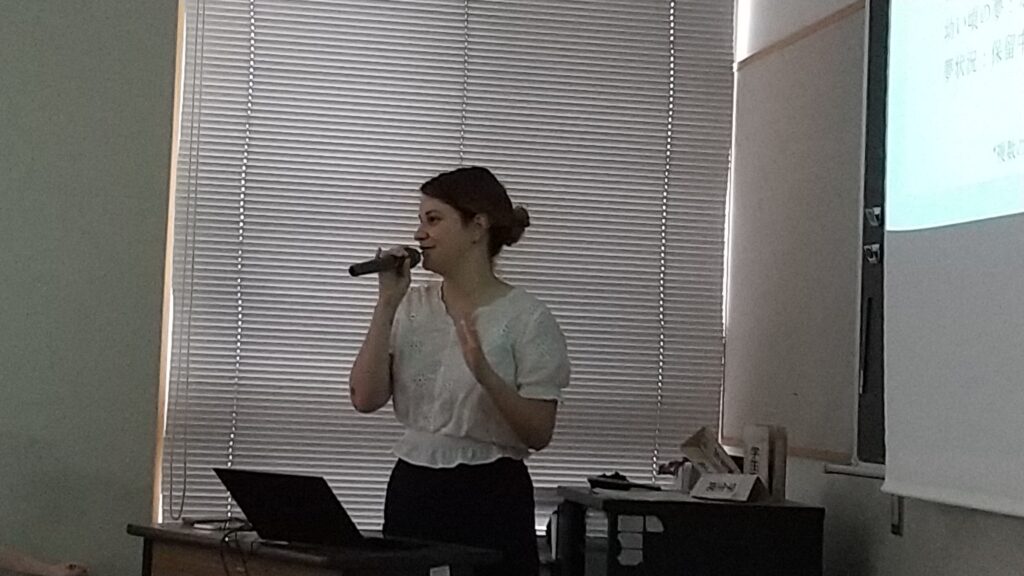
🇬🇧ENGLISH TRANSLATION
Hi, this is Clara from Answer Knocks.
In my last blog, I apologized for not blogging for a while, stating that it wasn’t because of a lack of news, but rather because I didn’t have time to sit down and write.
Today I’m here to comment on a university class that happened on June 24th.
You’re probably wondering, “Which university is Kaori teaching at now?”
Haha Gotcha!
This time, the teacher in question was me!
I had the opportunity to speak with students from Yamanashi Prefectural University.
Some of them are aiming to become Japanese language teachers or work in the humanities field, so they wanted to learn more about the experiences of foreigners living in Yamanashi.
Well, we ‘foreigners’ are a very diverse group, so it’s difficult to speak on behalf of all of us.
But, while our backgrounds are very different, we may have some common ground in the challenges we face while living in Japan, so I shared my own experiences, always emphasizing that the experience of a “Brazilian woman in her early 30s” shouldn’t be interpreted as the norm for all foreginers lives.
I spoke about my ideal Japan and the Japan I actually encountered, as well as the challenges regarding etiquette and language rules.
We also talked a lot about the differences between Japanese and Brazilian ways of thinking and facing life that lead to different solutions to everyday problems.
I tried to state clearly that I don’t believe it is a matter of who is right or who is wrong, but simply a difference in general perspective. And the same comes with the different perspectives other foreign groups showcase.
I believe it’s important not to judge the actions of other ethnic groups as “weird,” but to try to understand the traing of thought that makes people behave differently and that is the main message that I tried to convey to the class.
We had a lively conversation about stereotypes and cultural aspects in other countries that captivate us, trhying to investigate the reasons behind each one of those aspects.
I’d really like to thank everyone for having me and welcoming on that day.
My Japanese is still not very good, so I’m far from being a good speaker, but everyone in the class was trying hard to communicate with me and understand my message and I am well aware of it.
Clara, who was stuttering in front of every one, stood up.
🇧🇷TRADUÇÃO PARA PORTUGUÊS
Olá, aqui é a Clara, da Answer Knocks.
No meu último post, pedi desculpas por não postar por um tempo, e disse que não foi por falta de notícias, mas sim porque não tive tempo para sentar e escrever sobre elas.
Bom, hoje estou aqui para comentar sobre uma aula universitária que aconteceu no dia 24 de junho.
Você deve estar se perguntando: “Em qual universidade a Kaori foi dar aula dessa vez?”
Mas eu te peguei!
Desta vez, a professora em questão era eu!
Tive a oportunidade de conversar com alunos da Universidade da Prefeitura de Yamanashi.
Alguns deles pretendem se tornar professores de japonês ou trabalhar na área de humanidades, então queriam aprender mais sobre as experiências de estrangeiros que vivem por aqui.
Bem, nós, “estrangeiros”, somos um grupo muito diverso, então é difícil falar em nome de todos, mas embora nossas origens sejam muito diferentes, podemos ter alguns pontos em comum nos desafios que enfrentamos ao viver no Japão.
Por isso, compartilhei minhas próprias experiências, sempre enfatizando que a vivência de uma “mulher brasileira de 30 e poucos anos” não deve ser interpretada como a norma para a vida de todos os estrangeiros aqui.
Falei sobre o meu Japão ideal e o Japão que realmente vivencio, e sobre os desafios relacionados à etiqueta e barreiras de idioma…
Também conversamos bastante sobre as diferenças entre as maneiras japonesas e brasileiras de pensar e encarar a vida, que levam a soluções diferentes para os problemas cotidianos.
Tentei deixar claro que não acredito que seja uma questão de quem está certo ou errado, mas simplesmente uma diferença de perspectiva geral. E o mesmo se aplica às diferentes perspectivas que outros grupos estrangeiros apresentam.
Acredito que é importante não julgar as ações de outros grupos étnicos como “bizarras”, mas tentar entender a linha de pensamento que faz com que as pessoas se comportem de maneira diferente. Essa é a principal mensagem que tentei transmitir à turma.
Tivemos uma conversa animada sobre estereótipos e aspectos culturais de outros países que nos deixam curiosos, tentando investigar as razões por trás de cada um deles.
Gostaria muito de agradecer a todos por me receberam naquele dia.
Meu japonês ainda não é muito bom, então estou longe de ser um boa oradora em japonês, mas todos na turma estavam se esforçando para se comunicar comigo e entender minha mensagem, e eu tenho plena consciência disso.
Clara, que gaguejava na frente de todos, ficou de pé.




